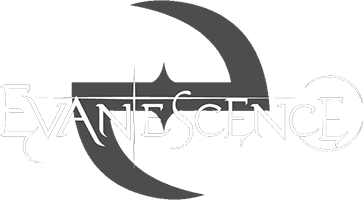Pressure is an important word in the story of Amy Lee, lead singer for Evanescence, and the reason it’s a success story is that Lee has handled pressure well.
First, she overcame the pressure of being a petite, piano-playing girl in a hard-rock world. “Fallen,” Evanescence’s 2003 national debut album, has sold more than 14 million copies worldwide and camped out on the Billboard 200 album chart for an astounding 104 weeks, spending more than a year in the top 50. But the success of record sales wasn’t what mattered most for Lee when it came time to release a studio
follow-up.
“For me, it was about proving myself as a musician because that is the only thing about being a girl that has been a struggle,” said Lee by phone from a tour stop in Cedar Rapids, Iowa. “No one ever expects that you can be a musician. They just expect that you’re the pretty face that’s fronting the band.”
Lee started Evanescence with friend and guitarist Ben Moody. They were the principal songwriters on their breakout album, which spawned the hits “Bring
Me to Life” and “My Immortal.” Rave reviews were followed by Grammy awards for best new artist and best hard-rock performance (“Bring Me to Life”).
But all was not well within the band. Creative differences between Lee and Moody bubbling beneath the surface finally burst with the pressures of newfound success.
“Ben and I were having a really hard time before the album came out,” said Lee. “We started growing apart. I think musically and creatively it was the main thing that came between us because we wanted different things for the band. We had different goals. For Ben, it was a lot more about commerciality, and I wanted to push myself as an artist, be more creative, and grow and evolve.”
Today’s Evanescence lineup – Lee (vocals/piano), Terry Balsamo (guitar), John LeCompt (guitar), Tim McCord (bass) and Rocky Gray (drums) – is a cohesive group of players and collaborators with whom Lee says she feels more comfortable. The real surprise, she said, has come in writing with Balsamo.
“No matter what kind of w acky, tripped-out idea I would have, he wants to run with it, which is new for me, because with Ben I didn’t even write with him. We just wrote on our own. My writing was very personal. I was insecure, so it was always trying to make our ideas fit together once they were written.”
Last year Evanescence released its long-awaited second studio album, “The Open Door.”
Moody’s presence apparently wasn’t missed and, through such piano-driven goth-rock gems as “Lithium,” “Call Me When You’re Sober” and “Sweet Sacrifice,” Lee had proved her songsmith prowess, her musicianship and the ability to deliver a great record in the face of adversity. “The Open Door” debuted at No.1 on the Billboard 200 album chart.
“After all the fighting I had done to gain that creativity, I felt like all I really wanted to do was use it and make every track unique and go far in every direction by using every emotion, every instrument I could play, push my voice higher than I have before.
“We actually have done really well with this album, and that was a bonus. That was really a surprise.”
Lee doesn’t necessarily view herself as a role
model for young girls.
She writes about personal experiences, a musical therapy of sorts.
“I wouldn’t put our music out for children. It deals with a lot of heavy issues that I wouldn’t have been able to handle at a young age. I write for myself to get through the challenges in my own life, but I think in that search people actually do find positive meaning and motivation for themselves.”
From the very beginning, Lee has had to endure the pressures of having to prove herself simply because she’s a woman. Her soaring, angelic voice in a hard-edged, rock-formatted world dominated by growling male screamers is a rarity.
“For us it was clear it was either a disability or a positive thing. But people who had to invest money in us were very afraid when it got close to record-release day for “Fallen” and thinking, ‘Oh, no. This isn’t going to work because there is nothing else like it.’ But I thought that’s what was going to give us the extra push we needed because it was different. There are lots of people out there that want to see a strong woman.”
